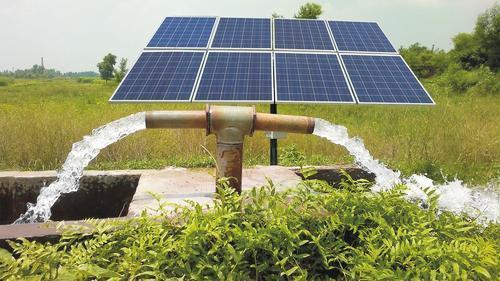
If the six most fossil fuel dependent nations do not transition to use of cleaner energy sources and adapt to climate change they will face a bleak economic future. According to a new report by the International Institute for Sustainable Development (IISD) India , one among these six, is predicted to be the worst sufferer.
The report recommends that these six nations- Brazil, Russia, India, Indonesia, China, and South Africa (BRIICS) – decarbonize and diversify their revenues or they might risk a revenue gap that could ruin the gains made by them on poverty eradication and economic development so far. This revenue gap has been estimated to grow up to USD 278 billion by 2030, equivalent to the combined total government revenues of Indonesia and South Africa in 2019. Therefore they need to better start adjusting their fiscal policies to account for declining fossil fuel use.
Titled ‘Boom and Bust: The Fiscal Implications of Fossil Fuel Phase-Out in Six Large Emerging Economies’, the report highlights the vulnerabilities of BRIICS for their heavy dependence on fossil fuel.
All countries around the world have to cut back on fossil fuel use to comply with the Paris Agreement, which is a legally binding international treaty on climate change adopted by 196 Parties on 12 December 2015. Its goal is to limit global warming to well below 2, preferably to 1.5 degrees Celsius, compared to pre-industrial levels by reducing greenhouse gas emissions as soon as possible to achieve a climate neutral world by mid-century.
If these six countries continue with a business-as-usual scenario fail the report explains that by 2050, overall fossil fuel revenues in these countries could be as much as USD 570 billion lower than in 2019. India will be the worst sufferer with highest revenue shortfall of USD 178 billion followed by China at USD 140 billion, and Russia at USD 134 billion.
The report finds that public revenues from fossil fuel production and consumption currently account for a staggering 34% of general government revenue in Russia, 18% in India, and 16% in Indonesia. The share stands at 8% in Brazil, 6% in South Africa, and 5% in China. The data includes only direct, first-order, government financial revenues. The fossil fuel dependence would be much larger if private incomes and flow-on effects in these economies are considered.
According to the authors of the report, the revenue loss is also likely to be accentuated by the negative economic impacts of fossil fuel use, such as health costs due to air pollution and damage from climate change. In fact, IISD’s previous research found that in many of these countries—including India and South Africa—these externalities far exceed public fossil fuel revenues.
 “Emerging economies have an enormous opportunity to build more resilient and economically sustainable energy systems as they decarbonize—but they must plan ahead to avoid shortfalls in public revenues that could reverse progress on poverty eradication and economic development,” says Tara Laan, senior associate at IISD and lead author of the report.
“Emerging economies have an enormous opportunity to build more resilient and economically sustainable energy systems as they decarbonize—but they must plan ahead to avoid shortfalls in public revenues that could reverse progress on poverty eradication and economic development,” says Tara Laan, senior associate at IISD and lead author of the report.
The report also suggests a number of ways through which the fossil fuel dependent countries can make up the revenue imbalance while trying to move towards cleaner energies. This economic planning can be done in climate-positive and socially progressive ways, such as by removing subsidies from fossil fuels and increasing taxes on them in ways that don’t hurt the poor—like export duties and windfall profits taxes, as imposed by India in the beginning of July.
The eventual fall in global energy prices will be an opportune time to impose carbon pricing, IISD experts say. Diversifying income streams—such as new targeted taxes in the energy and transport sectors—will also ensure that addiction to fossil fuel revenues does not become a barrier to reform.
The strategic move for transitioning has been taken by other countries in the past which have managed to keep their economies afloat despite making large reductions in fossil fuel revenues. The feat was achieved by rapidly developing other economic sectors. For instance in Indonesia, the government’s oil and gas revenues fell from 35% of total revenue in 2001 to 16% in 2019, while the country’s GDP growth and budget deficit remained largely unchanged.
“Surging energy prices and demand are generating huge revenues from fossil fuel production and consumption. These temporary, short-term windfall profits should be taxed to fund the energy transition, which, in turn, will boost energy supplies, create green jobs, contribute to economic growth, and ultimately, increase government revenues,” Laan says. “At the same time, governments must protect vulnerable consumers from high prices and support fossil fuel-dependent workers and communities in ways that don’t hinder the transition to cleaner energy.”
Though the report does not directly assess the implications of these findings in light of Russia’s war in Ukraine, it provides further evidence that Russia’s fiscal system is highly vulnerable to changes in fossil fuel demand and supply.
The IISD report aims to support BRIICS and other governments in planning for a managed transition to net-zero and to reduce the risk of revenue crises.
Seema Sharma is a Chandigarh based freelance journalist who writes about environment, climate change, human rights and gender issues. She tweets at seema_ env














































